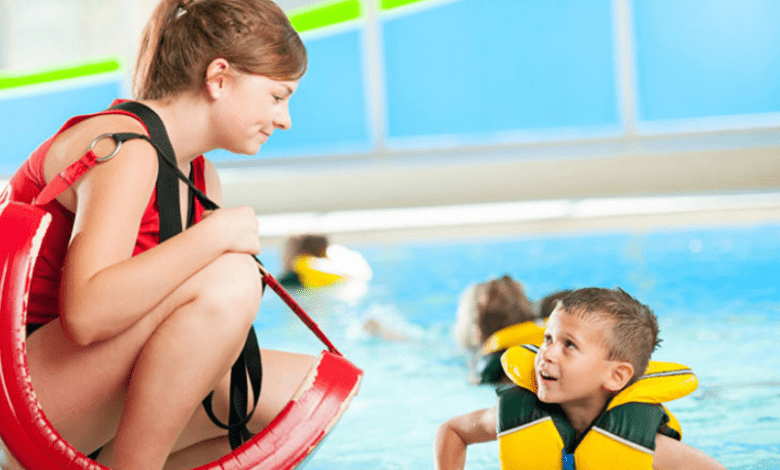
Lifeguarding is a crucial profession that requires individuals to have specific skills and training to ensure the safety of those in and around water bodies. There are different types of lifeguards, each with specific roles and responsibilities. In this article, we will discuss the different types of lifeguards, the training required for each type, and their respective roles and responsibilities.
Beach Lifeguards
Beach lifeguards are responsible for patrolling and ensuring the safety of beachgoers. They are trained to identify potential hazards such as rip currents, jellyfish, and other aquatic creatures that can pose a danger to swimmers. Beach lifeguards are also responsible for rescuing individuals who get caught in these hazards or experience other emergencies in the water.
Training for beach lifeguards includes lifeguard classes that cover skills such as water rescue techniques, CPR, and first aid. Certification for beach lifeguards includes a written exam and a skills test that evaluates their ability to perform various rescues and lifesaving techniques. Recertification is required every two years to maintain their certification.
Pool Lifeguards
Pool lifeguards are responsible for ensuring the safety of individuals who use swimming pools. They are trained to identify potential hazards in and around the pool, such as slippery surfaces, broken glass, and other dangerous objects. They are also responsible for monitoring individuals in the pool, ensuring that they are following safety rules, and responding to any emergencies that may arise.
Training for pool lifeguards includes lifeguard classes that cover skills such as water rescue techniques, CPR, and first aid. Certification for pool lifeguards includes a written exam and a skills test that evaluates their ability to perform various rescues and lifesaving techniques. Recertification is required every two years to maintain their certification.
Water Park Lifeguards
Water park lifeguards are responsible for ensuring the safety of individuals who use water park attractions such as slides, wave pools, and lazy rivers. They are trained to identify potential hazards in and around these attractions, such as slippery surfaces and high-speed water flows. T
hey are also responsible for monitoring individuals in these attractions, ensuring that they are following safety rules, and responding to any emergencies that may arise. Training for water park lifeguards includes lifeguard classes that cover skills such as water rescue techniques, CPR, and first aid.
Certification for water park lifeguards includes a written exam and a skills test that evaluates their ability to perform various rescues and lifesaving techniques. Recertification is required every two years to maintain their certification.
Aquatic Instructors
Aquatic instructors are responsible for teaching individuals how to swim and develop skills related to water activities. They are trained to develop and implement lesson plans that help individuals learn and progress in their swimming abilities. They are also responsible for ensuring the safety of their students in and around the water.
Training for aquatic instructors includes lifeguard classes that cover skills such as water rescue techniques, CPR, and first aid, as well as specialized training in teaching swimming and water activities. Certification for aquatic instructors includes a written exam and a skills test that evaluates their ability to teach and ensure the safety of their students. Recertification is required every two years to maintain their certification.
Open Water Lifeguards
Open water lifeguards are responsible for patrolling and ensuring the safety of individuals in natural bodies of water such as lakes, rivers, and oceans. They are trained to identify potential hazards such as strong currents, waves, and underwater obstacles.
Open water lifeguards are also responsible for rescuing individuals who get caught in these hazards or experience other emergencies in the water. Training for open water lifeguards includes lifeguard classes that cover skills such as water rescue techniques, CPR, and first aid, as well as specialized training in open water environments.
Certification for open water lifeguards includes a written exam and a skills test that evaluates their ability to perform various rescues and lifesaving techniques in natural water bodies. Recertification is required every two years to maintain their certification.
Special Event Lifeguards
Special event lifeguards are responsible for ensuring the safety of individuals during special events such as triathlons, swimming competitions, and other water-based activities. They are trained to identify potential hazards related to the specific event and respond to emergencies that may arise during the event.

Special event lifeguards are also responsible for providing medical assistance to individuals who experience injuries during the event. Training for special event lifeguards includes lifeguard classes that cover skills such as water rescue techniques, CPR, and first aid, as well as specialized training related to the specific event.
Certification for special event lifeguards includes a written exam and a skills test that evaluates their ability to perform various rescues and provide medical assistance during the event. Recertification is required every two years to maintain their certification.
Conclusion
Lifeguarding is a diverse profession that includes various types of lifeguards with specific roles and responsibilities. The American Lifeguard Association is providing different types of lifeguard training. Each type of lifeguard requires specialized training and certification that covers skills such as water rescue techniques, CPR, and first aid.
Maintaining lifeguard certification through recertification every two years is essential to ensure that lifeguards are up-to-date on the latest techniques, equipment, and regulations. As a lifeguard, it is important to be aware of the specific role and responsibilities of your position and to always prioritize the safety of individuals in and around water bodies.

